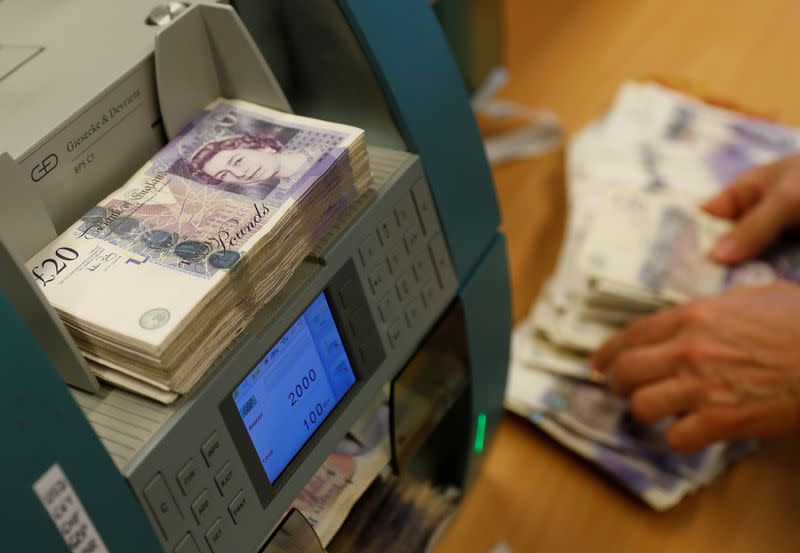Sterling loses ground to euro after French election first round

By Harry Robertson
LONDON (Reuters) - The pound slipped against the euro on Monday as the single currency rallied on investor expectations that France's far right party might not secure an outright majority after winning the first round of a national election.
The euro was up 0.27% against the pound at 84.97 pence, climbing further away from a two-year low of 83.97 pence hit in mid-June. The common currency climbed around 0.5% against the dollar.
Marine Le Pen's far-right Rassemblement National (RN) won the most votes in the first round of France's parliamentary election on Sunday, with President Emmanuel Macron's grouping in third place behind a left-wing coalition.
Yet the final outcome will depend on days of alliance-building before next weekend's second round of votes. Market analysts said RN fared slightly less well than expected and that a hung parliament seemed the most likely outcome, limiting some fears about the party's high-spending fiscal policies.
"This morning markets mostly breathe a small sigh of relief as Rassemblement National did not get as much support as some polls had suggested," said Bas van Geffen, senior macro strategist at Rabobank.
Sterling was up 0.24% against the U.S. currency at $1.2676 as the euro's gains held down the greenback.
The pound has traded around the same level since the start of the year, and is one of the best performers against the dollar in 2024.
Services and wage inflation in Britain has remained sticky, causing investors to push back their expectations for Bank of England rate cuts. Traders now think the first reduction is likely due in August or September.
Analysts have said expectations that the Labour party will win a thumping majority in Thursday's election and bring some stability to UK politics has likely helped British assets somewhat, although the impact has probably been muted.
"The chances of the election result deviating the Bank of England policy path are very low," said Francesco Pesole, currency strategist at ING.
"The pound should continue to rely on external drivers - both in EU politics and US macro - and key domestic data releases."
(Reporting by Harry Robertson; Editing by Susan Fenton)


